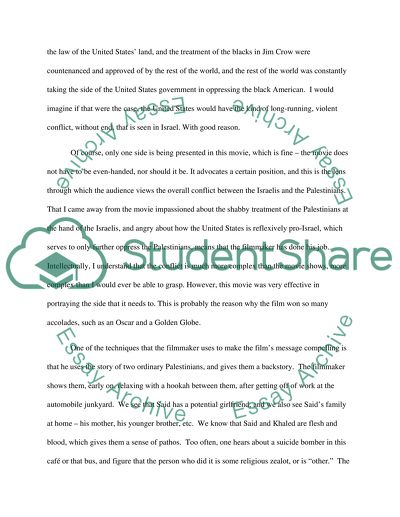Cite this document
(“Film Analysis Essay: Paradise Now Movie Review Example | Topics and Well Written Essays - 2000 words”, n.d.)
Film Analysis Essay: Paradise Now Movie Review Example | Topics and Well Written Essays - 2000 words. Retrieved from https://studentshare.org/visual-arts-film-studies/1451688-film-analysis-essay
Film Analysis Essay: Paradise Now Movie Review Example | Topics and Well Written Essays - 2000 words. Retrieved from https://studentshare.org/visual-arts-film-studies/1451688-film-analysis-essay
(Film Analysis Essay: Paradise Now Movie Review Example | Topics and Well Written Essays - 2000 Words)
Film Analysis Essay: Paradise Now Movie Review Example | Topics and Well Written Essays - 2000 Words. https://studentshare.org/visual-arts-film-studies/1451688-film-analysis-essay.
Film Analysis Essay: Paradise Now Movie Review Example | Topics and Well Written Essays - 2000 Words. https://studentshare.org/visual-arts-film-studies/1451688-film-analysis-essay.
“Film Analysis Essay: Paradise Now Movie Review Example | Topics and Well Written Essays - 2000 Words”, n.d. https://studentshare.org/visual-arts-film-studies/1451688-film-analysis-essay.


